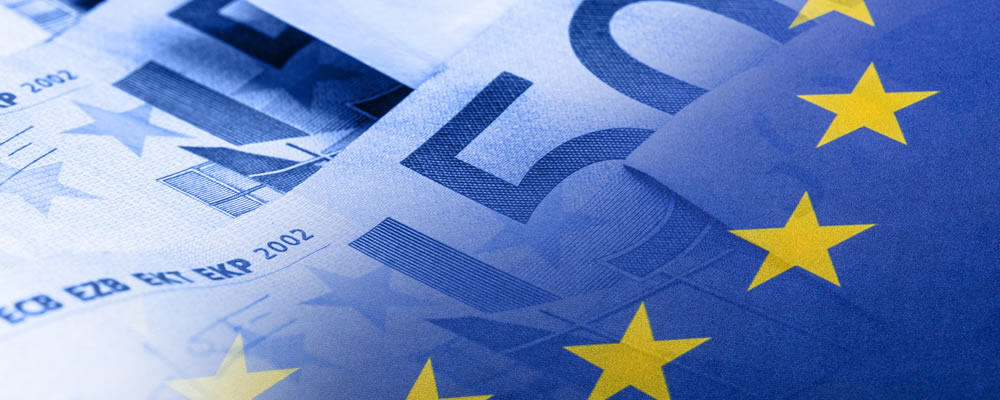- Italian banking sector remains in focus – Eurogroup stress need for Italy to follow existing state aid rules
- EUR GBP exchange rate weakened by early victory in Tory leadership race – Pound boosted after Theresa May emerged victorious
- US Dollar strength limited by weak Labour Market Conditions Index – Robustness of US economy remains in question
- Euro forecast to weaken if US data proves positive today – Stronger US domestic confidence likely to weigh on EUR USD currency pair
Dovish Fed Commentary Weighs on US Dollar (USD) Demand
The US Dollar (USD) weakened further on Tuesday afternoon after St Louis Federal Reserve President James Bullard reiterated the opinion that only one interest rate hike would be appropriate for the near future. This less hawkish rhetoric dampened the mood towards the ‘Greenback’, allowing the EUR USD exchange rate to trend higher in the region of 1.1070 towards the close of the European session.
(Previously updated at 15:06 on 12/07/2016)
Eurozone-focused worries have continued to hamper the EUR USD exchange rate this week, with the Italian banking sector and Brexit contagion hanging over the outlook of the single currency. Demand for the Pound, meanwhile, improved thanks to the surprise premature end to the Conservative leadership contest.
With the UK’s political landscape looking slightly more stable, and the election of the nation’s new PM occurring far more rapidly than anyone had envisaged, the Pound posted broad-based gains and drove the Euro lower.
As the European session progressed on Tuesday the EUR/GBP exchange rate was left trending in the region of 0.8428, down 1.0% on the day’s opening levels. However, the Euro was able to gain 0.4% against the US Dollar.
The Pound’s gains against the Euro may only be temporary in light of the expectation that the Bank of England will introduce further easing measures when it gathers this week, but for now the currency is holding firm.
Euro (EUR) Exchange Rate Mixed despite Easing of Worries over Italian Banking Crisis
There was something of a vote of confidence for Italy’s beleaguered banking sector on Monday, with Eurogroup President Jeroen Dijsselbloem expressing confidence that the situation can be resolved. Dijsselbloem noted that the worries that are afflicting the banks are not yet ‘an acute crisis’, while also reiterating that Eurozone rules are still to be respected when dealing with the mountain of bad debt. This somewhat cautious note limited the ensuing boost to the Euro (EUR), preventing the single currency from making any particular gains against its major rivals.
Investors are not likely to take any particular cues from today’s finalised German Consumer Price Index, with the figure not expected to show any change from the initial reading. However, while inflationary pressure in the Eurozone’s powerhouse economy edged higher in June this recovery remains decidedly fragile. The fallout of the UK’s vote to leave the EU is expected to put renewed pressure on the German economy, with any additional suggestions of weakness likely to drag on the appeal of the Euro.
Pound (GBP) Boosted by Premature End to Conservative Leadership Race ahead of BoE
Confidence in the Pound (GBP) rallied sharply at the start of the week, after Andrea Leadsom unexpectedly withdrew from the Conservative leadership race. Markets were reassured by the prospect of ‘Remain’ campaigner Theresa May becoming the next Prime Minister, despite her previous assertion that Article 50 should not be triggered before the end of the year. May was considered to be the better candidate to ensure that the UK maintains a relatively close and beneficial relationship with the EU, offering encouragement to investors.
Even so, this optimism is unlikely to be sustained for long, with investors awaiting the first post-Brexit Bank of England (BoE) policy meeting on Thursday. The expectation is for the BoE to cut interest rates in response to the uncertainty and turmoil that has gripped the domestic economy in the wake of the referendum result, a move that would sharply weaken the Pound. It seems highly unlikely that policymakers will choose to hold fire at this juncture, as researchers at BBH noted:
‘One of takeaways from the Great Financial Crisis experience is the most effective policy response comes early and forcefully. The Bank of England has every reasons to suspect that the Brexit decision will hit an economy that may have already been slowing. The political firestorm does not help matters. The BOE can act, or it can react. We suspect it will act. This does not preclude the BOE from doing more later.’
EUR USD Exchange Rate Forecast to Weaken on Narrowed Wholesale Inventories
Despite Friday’s stronger-than-expected Non-Farm Payrolls report the US Dollar (USD) has not been on particularly bullish form. Investors still assess the chances of the Federal Reserve opting to raise interest rates before the end of the year, or the next, as decidedly limited even in the wake of the upside surprise. Underlying weakness in wage growth and the participation rate fostered further worries over the robustness of the US economy, a concern that was not helped by a soft Fed Labour Market Conditions Index.
Nevertheless, the ‘Greenback’ could find more substantial support on this afternoon’s NFIB Small Business Optimism Index and Wholesale Inventories data. Forecasts for May suggest a drop in inventories, a result which would seem to signal stronger consumer demand and economic confidence. If domestic sentiment does show signs of improvement then the EUR USD exchange rate is likely to trend lower, pulling the single currency down against many of its other rivals in the process.



